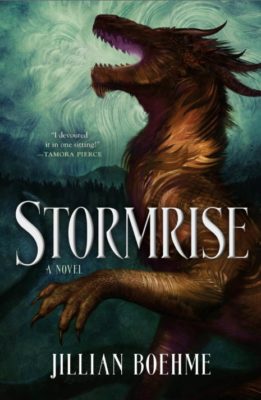Christian Themes In Books By Christians
By Christian themes, I mean a point a story makes—either as a major or minor issue—that aligns with the gospel, the Good News that Jesus Christ came to save sinners, which includes all of us. For a number of years, even after books published by “Christian publishing companies” included better prose, better description, perhaps better plots, they were still being dinged by the reading public because they were “too preachy.” That’s just another way of saying, they laid out their Christian theme in a transparent way.
 Friday, in response to our Spec Faith guest article by Jillian Boehme, author of the soon-to-be released Stormrise (there’s still time to enter the pre-order contest—see details here), a discussion arose concerning forgiveness, certainly a theme I would consider Christian. At the human level, forgiveness is not the exclusive property of Christians, but neither is love or grace or kindness or any of the other qualities we see in God and Christ in His life and act of sacrifice which provides us with an escaped from sin and its consequences. Nevertheless, it is a key component of the gospel message.
Friday, in response to our Spec Faith guest article by Jillian Boehme, author of the soon-to-be released Stormrise (there’s still time to enter the pre-order contest—see details here), a discussion arose concerning forgiveness, certainly a theme I would consider Christian. At the human level, forgiveness is not the exclusive property of Christians, but neither is love or grace or kindness or any of the other qualities we see in God and Christ in His life and act of sacrifice which provides us with an escaped from sin and its consequences. Nevertheless, it is a key component of the gospel message.
So forgiveness is in Boehme’s novel Stormrise, but is it the “right” forgiveness? That seems to be where the discussion started.
Here is a critical point for Christians, I think, both readers and writers: must Christian themes be totally unambiguous and on-the-nose to be properly considered, Christian? Must a book that includes the theme of forgiveness show reconciliation as a result (because that’s certainly what God’s forgiveness of us entails), or can it reflect a “one-sided” attitude that does not bring a relationship full circle?
Actually, all this is another way of asking, How Christian must Christian themes be?
I tend to think that Christian fiction can be preachy (and some still is today) because authors don’t want an incomplete message. They don’t want readers missing what they want to say. They want to deliver the whole gospel and not part of the gospel. They don’t want their Christian theme to be misunderstood.
I can identify because I went through a self-analysis of my own writing some years ago. Was I willing to be misunderstood? Did I have to “spoil” the story by making the themes crystal clear?
In truth, themes should be crystal clear, but even Christian themes should not overshadow the story. They are not morals added on to make the point the way morals are added to fables. Rather, the best novels and short stories make the reader think about what they are saying; wonder what happens next as a result of what happened in the story; think about whether or not the character made the wisest choices; whether they stumbled on something true or not.
Themes we think about are not delivered in a perfectly wrapped package with a nice, neat bow on top. In other words, in a book that includes the theme of forgiveness, there well may not be a definition of forgiveness or a discussion of the ramifications of it. Those things might seep through as a character struggles to reach a point of forgiving—or not. They simply don’t have to be there.
Great themes, including great Christian themes, actually are great because they require some introspection on the part of the reader. When they are crystal clear, a reader can nod and close the book (and forget the story in days, most likely); or shake his head, throw the book across the room, and write a review telling everyone how preachy this book is. People who agree will have some affirmation; people who disagree will criticize. But neither one thinks much about what they read, because they got the point and don’t need to go any farther.
Great Christian themes should generate more questions. Great Christian themes don’t give all the answers.
Consequently, Christian themes won’t necessarily contain the whole gospel. It’s not impossible, certainly, but laying out all that God did for us, in a story, will likely not be unambiguous.
In part this is true because Christ has great name recognition in the world. It’s polarizing, as Jesus said it would be. Should that keep Christians from writing books that contain Christian themes that point to Him or His work or His plan or His purpose? Not at all.
But those Christian themes don’t have to always be fleshed out and fully explained. They can be suggested. They can generate thought such as this: I’d love to know unconditional love like that; I wonder if there really is such a thing. Or perhaps like this: Why would someone forgive anybody who has hurt them so much; is that even possible?
Christian stories today seem to fall into two camps: ones that are just good, clean, entertaining stories; or ones that make some effort to present the gospel either for Christians or about characters who are or become Christians.
Nothing wrong with either of those. But it seems to me, there is a need for the third kind, the story with the great Christian theme that makes readers think about some element of Christianity.
 A number of years ago Peace Like A River by Leif Enger made a great splash (no pun here), even winning awards and reaching best-selling status. To be honest with you, I didn’t like the book. At all. It had some good features, truly, but that didn’t change the fact that I didn’t like it. Yet I have to say, it made me think. I couldn’t walk away without wrestling a bit with a theme of the book: does God involve Himself in the personal and specific affairs of men?
A number of years ago Peace Like A River by Leif Enger made a great splash (no pun here), even winning awards and reaching best-selling status. To be honest with you, I didn’t like the book. At all. It had some good features, truly, but that didn’t change the fact that I didn’t like it. Yet I have to say, it made me think. I couldn’t walk away without wrestling a bit with a theme of the book: does God involve Himself in the personal and specific affairs of men?
In a sense that book was an eye-opener for me. Stories can make people think about God without being preachy . . . if they are willing to risk the possibility of being misunderstood or debated or disagreed with. But of course, with great risk comes great reward.






























Show, don’t tell, is often one of the best rules to remember when thinking about message, theme and characterization. There are times when someone can ‘tell’ in their stories, but generally that should be in an entertaining way, one that makes it feel like that is the natural perspective of a character rather than something the author is trying to force readers to do.
That involves letting the story illustrate how people actually are on some level, rather than having them directly learn a certain lesson and then have it all tie up in a nice little bow so that the story can have a nice fluffy ending. With my current WIP, for instance…the main char never really forgives his mother, but his life shows the hows and whys of his feelings, as well as the effects. He isn’t even worried about forgiving her, but he is concerned when he sees how his resentments affect his behavior, which spurs him into a decision that starts the whole plot. Still, though, forgiveness isn’t really the theme of the story. Right now, conflict in general comes a lot closer to being the central theme. But, I don’t know. If a story basically shows the anatomy of resentment or some type of situation, people can learn a lot from it, and form their own conclusions, even if the story doesn’t come out and say what those conclusions are.
And like, I don’t know, just because an author believes in forgiveness or patience or self control or a certain political stance, does that mean that all of their chars (or even the main ones) have to be perfect bastions of their viewpoint?
In some ways I actually do struggle with message because I’ve always hated being misunderstood and pour a lot of effort into communicating clearly. But communicating well in a story doesn’t have to mean stating things in a blunt, preachy and seemingly inauthentic way. Not everyone is going to understand, no matter what anyone does, but with time authors can learn to communicate clearly by showing and not using preachy telling methods.
I think there’s another kind of Christian fiction which you didn’t mention. At least one other, maybe two. A basic kind or kinds.
There’s yes, clean fiction and also fiction with a gospel message. But another type would seem to me to be realistic fiction about Christian characters, which shows them reacting in faith to genuine hardship–note the “genuine” part of the hardship may partially or wholly contradict the clean fiction vibe, because hardship may include someone hurling profanity at the Christian character or the portrayal of crimes like rape. Which pretty much doesn’t qualify as clean, but is worth portraying at times.
A possible fourth type is “possible” based on what you meant by a “gospel message.” If you meant sharing the good news of salvation so that a person might accept Christ then there are other theological themes that a story could show other than a gospel message. E.g. a story could simply demonstrate the existence of God or the power of God or the nature of spiritual warfare without laying out a gospel message. Though perhaps what you meant by “gospel” was broader–perhaps you meant by “gospel” any story with a specific Christian intent.
In any case, a problem I see with Christian fiction is the dominance of clean fiction–which is fine in its own context–creating an expectation that Christian = clean. Which it doesn’t necessarily.
I’m also concerned with clean stories that in theme are either subtly or blatantly in opposition to actual Christian teaching but which pass as Christian because they are clean. Not good.
I think many new so-called Christian fiction books, better written in style than older “Christian” books that woodenly featured a message of salvation in every plot, actually suffer from lacking any really interesting ideas, be they Christian or otherwise. It’s a stealthy issue of a slick cover, slick production, crisp prose, but no real message at all. A story of plot, characters, but pretty much no theme of any importance at all. Just characters going through some kind of conflict to get to a resolution.
Our predecessors in fiction, both Christian and non-Christian, did not hesitate to use fiction to comment on the nature of the universe and our species…great stories don’t omit powerful themes.
Personally, I like to find Christian authors who write great sci-fi/fantasy books, rather than authors who write great Christian sci-fi/fantasy books. There’s a big difference. Even when there’s little trace of “Christian” in the story, a Christian author will imbue the story with an underlying world view that reflects biblical truth.
Yes, an excellent point, Stephen. Do you have any favorite authors who come to mind?
Show. Don’t preach.
Very good points, Rebecca, which I grapple with as I continue to polish my first “Christian” novel and prepare the proposal for Christianbookproposals.com.